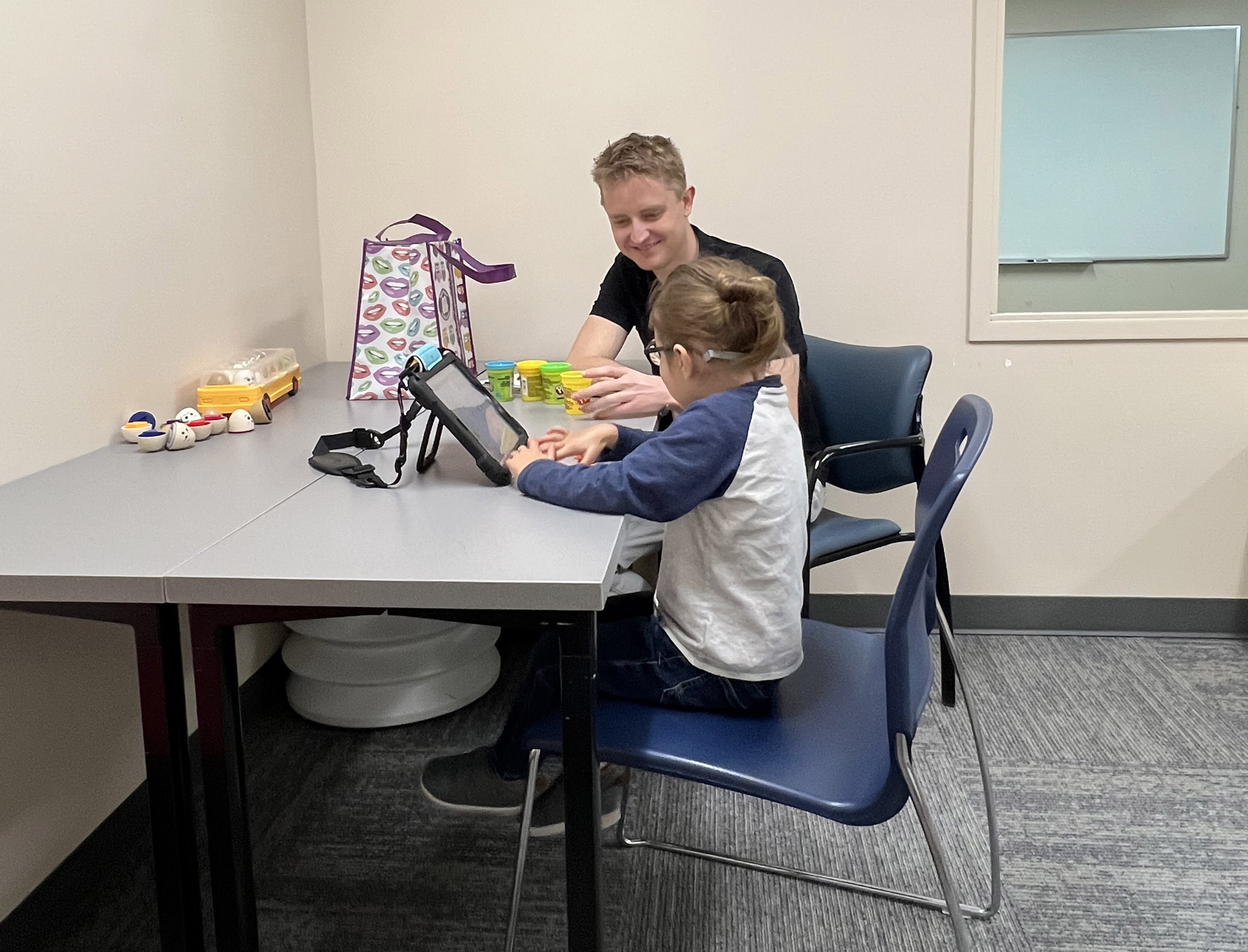
Like many three-year-olds, Eztli loves cars. But unlike most toddlers, Eztli has a rare sex chromosome genetic disease called 48,XXXY syndrome. The chromosome disease means that he faces a range of physical and cognitive challenges, including delays in speech.
Fortunately, Eztli’s parents have been extremely proactive with interventions since his first year of life. He’s consistently worked with speech therapists across multiple programs so he can learn to communicate, even if it’s not through spoken word.

“My wife came across a few articles in medical journals where it discussed studies of individuals with these chromosomal conditions,” Steve Ohlson, Eztli’s father, said. “It pointed out that the earlier intervention speech therapy they can get, the better.”
Ohlson’s wife works at the University of Utah, where one of her colleagues recommended the services of the Speech-Language-Hearing Clinic. Eztli started last fall and works one-on-one with a graduate student each week. The sessions are tailored to his unique needs and feature a mix of English, Spanish, American Sign Language, and his Augmentative and Alternative Communication (AAC) device.
“We’ve been really pleased,” Ohlson said. “Even though he can’t use words yet, he’s finding ways to communicate to us through body language, certain sounds, or sign language. We’re most focused on sign language right now because it really resonates with him.”
Because Eztli loves cars, the graduate students he works with try to incorporate play with toy cars into every session, an effective way to connect. To Ohlson, it’s obvious they care about his child, and he appreciates their organization and professionalism.
Eztli is making great progress with sign language, even though another symptom of his syndrome, the fusion of his forearm bones, makes it impossible for him to turn his palms upward and have full control of his fingers. He also faces physical difficulties that makes it hard to climb, jump, or walk down steps, which can understandably cause him frustration.
“The biggest thing we’re focused on right now is identifying emotions,” Ohlson said. “When he gets upset, he can get really frustrated because he can’t communicate what emotion he’s feeling. If we can help him with that, we can figure out how to problem-solve.”
Living with a rare disease means a lot of the future is unknown. Eztli’s parents don’t know where he’ll go to school, if he’ll be able to live on his own, or what kinds of treatments he may need as he gets older. But they do have the certainty of their work at the Speech-Language-Hearing Clinic, where their sessions can continue indefinitely.
“My biggest hope for Eztli is that he’ll be able to express himself and move through the world using communication for safety and happiness,” Ohlson said. “I would love if he could someday talk, but otherwise I hope he can learn to communicate his needs, wants, and desires just as well as anyone who is verbal.”